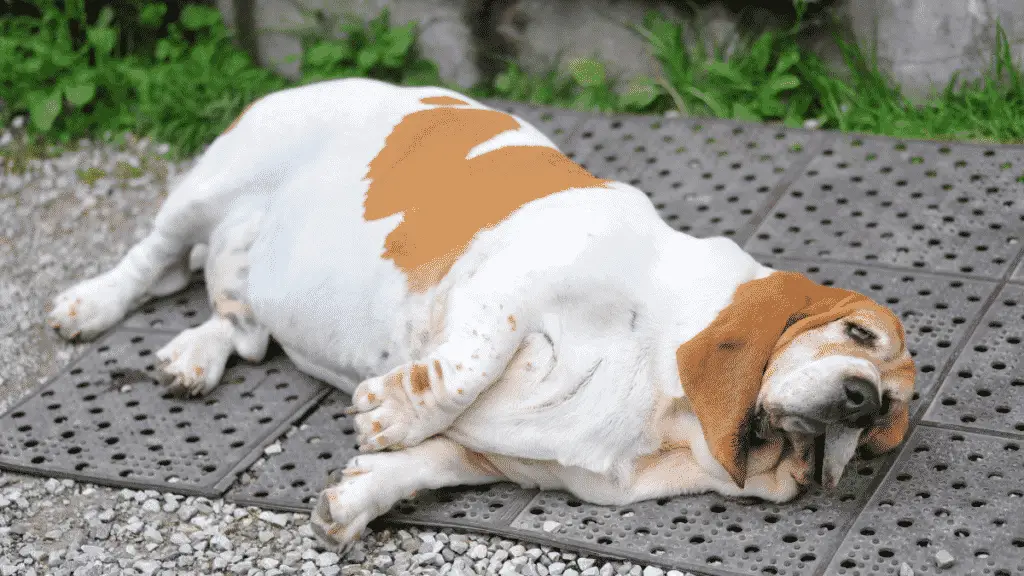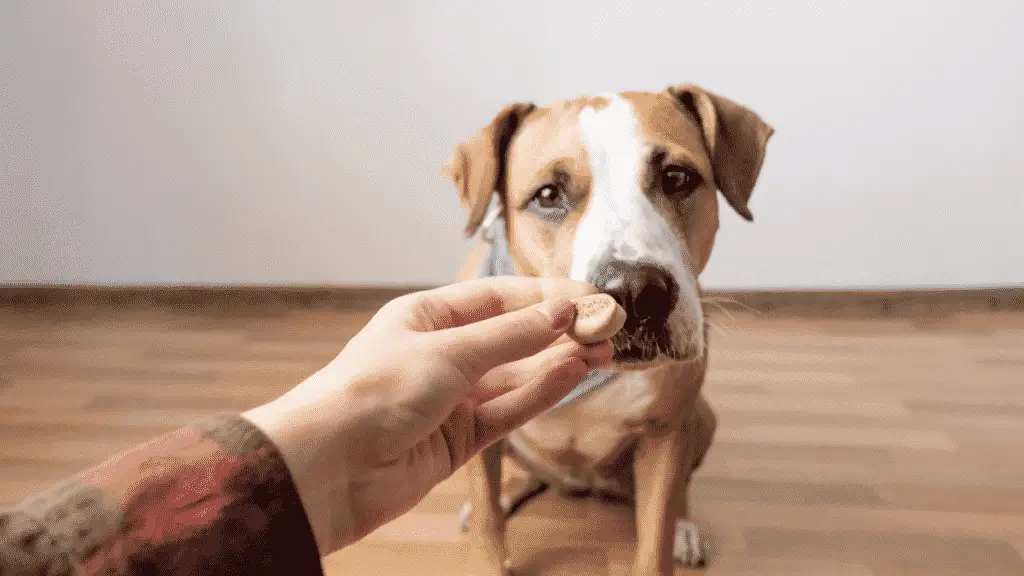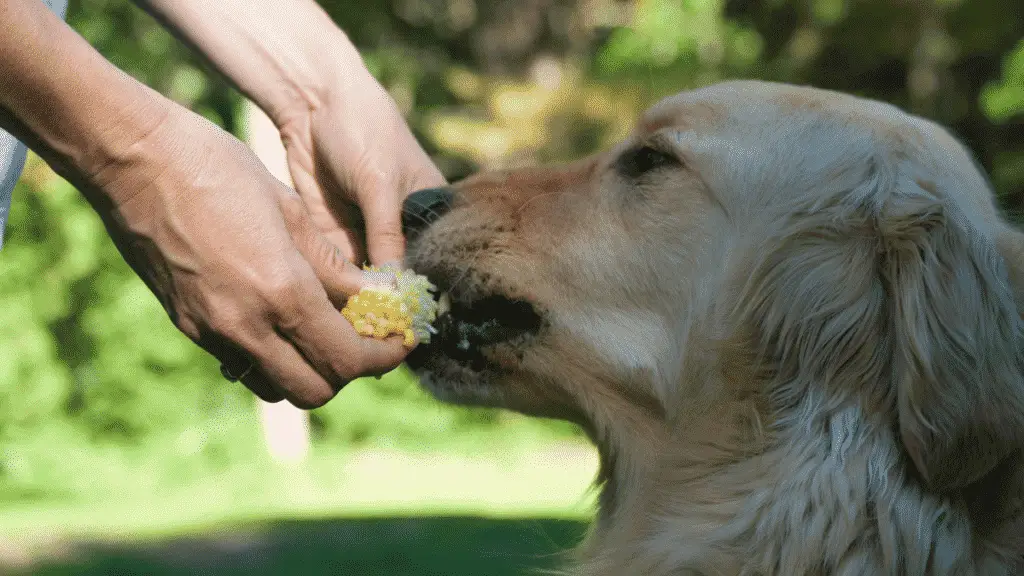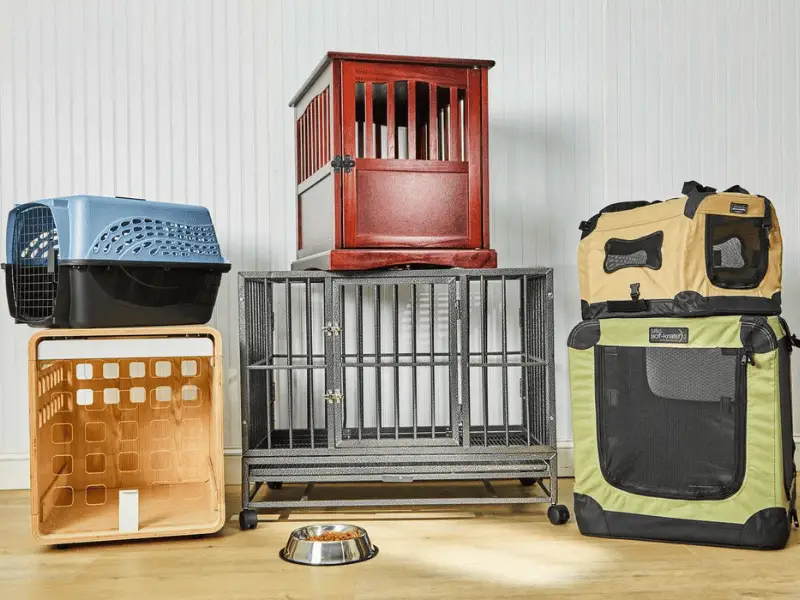When it comes to overweight big dogs, we need to understand that they are consuming more calories than they need to be. Often, dog owners don’t understand why their dog is overweight, as ‘they are not fed that much’. If you have large dog breeds you will want to understand how to moderate their eating and enhance their exercise. A few extra pounds can impact our big dogs, small or medium sized dogs’ quality of life by affecting their mobility, energy levels, mood and overall temperament.
Typically, diet matters more than exercise when it comes to shifting the pounds. It is important to remember that diet consists of a dog’s main meals as well as any treats, chews and tidbits they get.

Here are some of the best expert advise from Dr. Linda Simon, veterinary surgeon and consultant at FiveBarks.
Expert Tips For Overweight Big Dogs and Large Dog Breeds
Include treats and chews when calculating calories
Many owners neglect to include dental sticks and raw hide chews when they are calculating calories fed. It is sensible to work out how many calories your large dog breeds need to maintain a healthy weight and to keep a food journal to stick to the target. Remember, treats and chews should only make up 10% of a dog’s calorie intake. Use a weighing scales when measuring portions, to avoid making over-estimates.

Keep your big dogs and medium sized dogs active
Ensure dogs are consistently exercised, rather than just on weekends. This means their metabolism doesn’t slow down and they are constantly burning calories. Obese dogs may struggle with long walks, so consider alternative activities such as swimming or off-lead walks on softer substrates such as grass or sand.
Healthy human food large dog breeds can eat

- Lean meats such as turkey and chicken as well as fish including cod, hake and herring can all be fed to your dog
- Eggs are a good source of protein and many dogs enjoy the taste
- Avoid using seasoning, butter or oil when cooking food for your dog
- Veggies such as broccoli, turnips, carrots, potatoes, sweetcorn and button mushrooms are also healthy options
- Steer clear of onions and garlic which are toxic to all dogs
- While fruits are okay as a sometimes treat, they are generally high in sugar. Banana and blueberries work well to bake into healthy dog biscuits
- Grains such as white rice, brown rice and oats are all usually well tolerated and can act as a good energy source
Home-made diets are usually lacking in nutrients such as calcium, iodine and other minerals. If you wish to feed a home-made diet, it is essential you work with a canine nutritionist to avoid making your dog unwell.
How can dog owners help their overweight dog eat better?
- The mainstay of good canine nutrition is offering a high-quality dog food that is suitable for their life stage.
- We should feed the best dog food we can afford, sticking to those with high meat content and free of any fillers or artificial additives.
- Don’t over feed treats or tit bits; use them mainly for rewarding good behaviour and during training sessions.
- Consider feeding your dogs using food puzzles. This is a great way to get them a little more active during their meal time and it also serves as a neat source of environmental enrichment.
Contributor
Dr. Linda Simon, Veterinary Surgeon and Consultant at FiveBarks.


